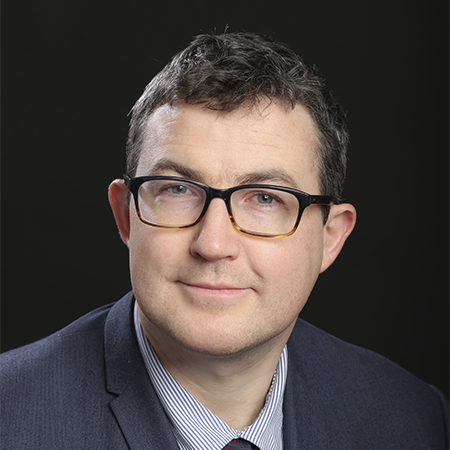Approximately 15 per cent of the general population suffer from sleep apnea, affecting patients on a day-to-day basis by reducing sleep quality and resulting in daytime sleepiness, decreased cognitive function and impaired functional capacity. In Ontario, it is estimated that up to 80 per cent of those with sleep apnea remain undiagnosed, partly due to long wait times for assessment and diagnosis which requires an in-hospital overnight sleep study. Dr. Owen Lyons is focused on improving access to and treatments for sleep apnea which will improve the patient experience by removing the need for an in-hospital sleep study – reducing the number of hospital visits and improving patient outcomes.
Over time, sleep apnea is associated with an increased risk of heart disease including high blood pressure, heart failure and stroke. Despite becoming increasingly common in women, the condition is still traditionally considered a disease of middle-aged men. Dr. Lyons’ research aims to better understand the underlying pathophysiology of sleep apnea, to develop novel and nuanced approaches to treatment – particularly for women. These new treatments will help improve patient’s quality of life and reduce their risk of heart disease, particularly in high-risk populations of women with heart disease, chronic kidney disease and post-menopause. To improve outcomes for women with kidney disease, Dr. Lyons’ research has shown that the development of sleep apnea is largely due to excessive total body fluid because of reduced kidney function. By using a mode of dialysis called ultrafiltration, Dr. Lyons’ was able to demonstrate a marked improvement in sleep apnea severity and sleep quality among these patients.
To address growing wait times for diagnosis of sleep apnea in Ontario, Dr. Lyons is currently testing a novel portable home sleep apnea diagnostic device for use in a patient’s own home to develop a new clinical pathway for the diagnosis of sleep apnea. The device would reduce or eliminate the need for an in-hospital sleep study and improve access to early diagnosis and treatment, while enhancing the patient experience and reducing healthcare system costs.
MRCPI, Member of Royal College of Physicians in Ireland, 2003
MB BCh BAO (Medical Degree), Royal College of Surgeons in Ireland, 2000
- The Dr. Gregory Downey Science Award, University of Toronto (2014)
- The Joseph M. West Family Memorial Fund Postgraduate Research Award, University of Toronto (2014)
- Peter Macklem Research Fellowship, Canadian Thoracic Society/European Respiratory Society (2012)
- Sleep apnea
- Sleep disorders
- Respiratory medicine
